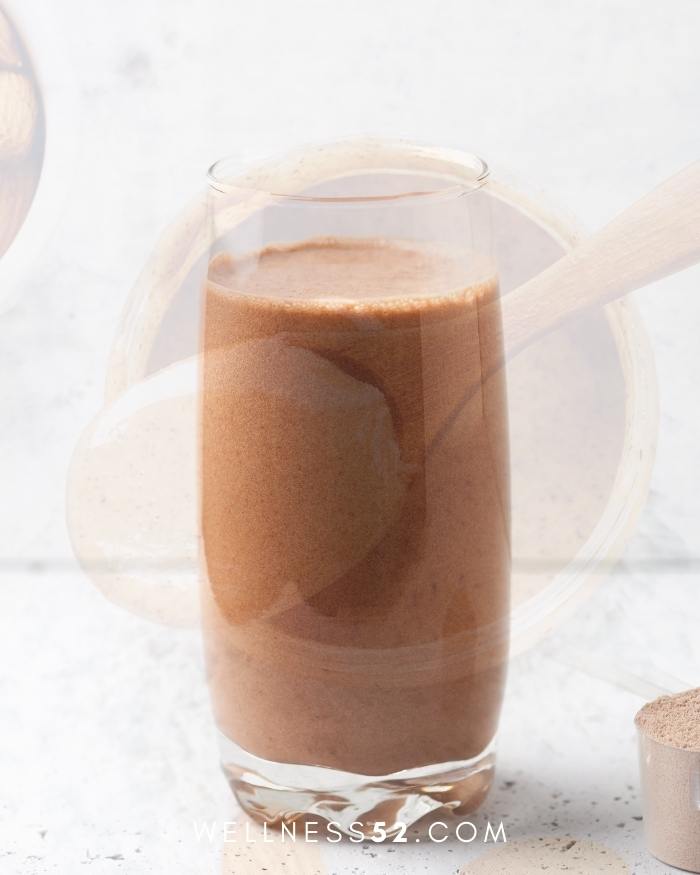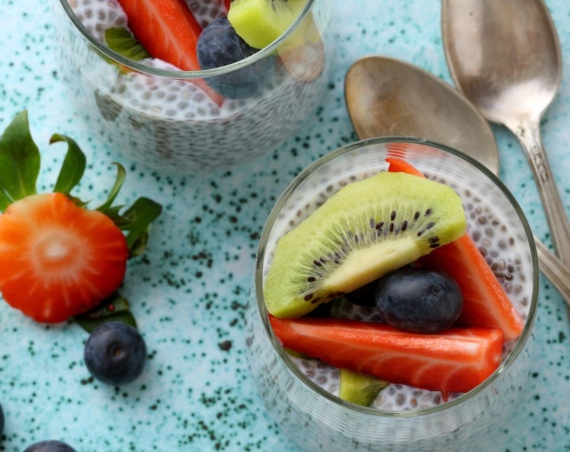
Can you Have Meal Replacement Shakes on the Keto Diet?
Will a meal replacement shake help or hinder your keto diet efforts?
Our in-depth analysis reveals all.
Transitioning to keto is a challenge for anyone.
But when you’ve got a busy schedule, it’s even harder. Often one of the first things to slide when you’re rushing around in your eating.
Many people have found that meal replacement shakes can really help.
They provide a ready-made meal that’s nutritionally balanced and quick.
But do meal replacement shakes have a place on the keto diet?
Let’s investigate.
In a Nutshell
Yes, you can enjoy meal replacement shakes on the keto diet.
Fortunately, there are a number of keto-friendly shakes that are made just for keto dieters.
But you still need to be careful. Look for brands that, as well as keeping the carbs to 5% of the total macro count, avoid fillers and preservatives.
What Are Meal Replacement Shakes?

Meal replacement shakes are precisely what they claim to be; shakes that are designed to replace a whole food meal.
They are created to contain the same macronutrient ratio of the meal that you are replacing, as well as containing all of the vitamins and minerals that would also come with the meal.
Meal replacement shakes are popular with low-calorie dieters who may replace 2 or more meals per day with a shake.
However, it is not advisable to have more than one meal replacement shake per day.
Your body was designed to consume and digest whole food and this should make up the majority of what you eat.
However, a good meal replacement shake can be used once per day as a supplement to help you stick to your chosen eating regime.
Meal replacements come in powdered form. They are mixed with either milk or water in a blender or shaker to create a shake.
What Goes Into Keto Meal Replacements?
There is now a market segment that caters specifically to the keto meal replacement consumer.
These meal replacement shakes have been designed to mimic the macronutrient ratio of the standard keto diet: high fat, medium protein, and very low carb.
Meal replacement shakes will usually include the following ingredients:
- Protein powder
- Plant oils
- MCT oil
- Fiber
- Vitamins
- Mineral
- Natural sweeteners
- Probiotics
A number of shake formulas also include powdered dairy ingredients, including egg, butter, and cream.
Keto diet targeted meal replacement shakes mixtures may also include natural ingredients to promote weight loss and the suppression of the appetite.
As well as being low carb, they will be low in total calories.
But there is a bad side to the meal replacement shake industry. Many products out there include compounds that you do not want in your body.
These may include artificial flavorings, artificial sweeteners, emulsifiers, and low-quality protein powder.
That is why, if you are planning to buy a keto meal replacement shake product, you need to be a discerning shopper.
To do that you need to check the label. If you see words within the first five ingredients that you can’t pronounce, put it back on the shelf!
Why Take A Meal Replacement?
Convenience
The biggest benefit of meal replacement shakes is their convenience.
Sometimes you just don’t have the time or circumstances to sit down and have a whole food meal.
At those times, being able to whip up a nutritious, keto diet balanced, delicious shake in just a couple of minutes can be a life-saver.
Macro Control
Another benefit of keto shakes is that they take the guesswork out of your macros. There’s no need to count calories or weigh your foods.
You’ll know precisely how many grams of carbs, protein, and fats you’re taking into your body because it’s written on the packet!
Nutrients
Meal replacement shakes also help you to get a full complement of nutrients.
They have been designed to help you meet your recommended daily intake of important vitamins and minerals.
How Many Calories?
Many meal replacement products are designed with a low total calorie count.
These are meant for people who are on traditional restricted calorie diets.
In these cases, the total calorie count for the product can be as low as 150 calories.
However, when you are on the ketogenic diet, your focus is NOT on restricting your total caloric intake.
Instead, it is all about keeping the carbs down to 5% of your total macros and your fats to between 70 and 75%.
For that reason, avoid low-calorie meal replacements. Instead, choose a product that gives you about 300 calories.
What Does the Research Say?
There is quite a lot of scientific evidence that meal replacement shakes can help a person achieve sustained fat loss.
The results of a National Institute of Diabetes and Digestive and Kidney Diseases study published in a 2013 issue of Obesity found that the combination of meal replacement shakes and a weight loss diet resulted in less regaining of weight.
Another study showed that people who combined a meal replacement shake as a part of their diet plan were able to lose more weight than people on a standard diet.
Researchers believed that this was mainly because the meal replacement helped them to stick to their nutritional plan rather than reaching for foods that would blow out their macronutrients.
In 2019, a meta-analysis of a number of studies concluded that ‘programs incorporating meal replacements led to greater weight loss at 1 year than comparative weight loss programs.’
When to Use a Replacement Shake on Keto?
Because of their convenience, it is easy to over-rely on meal replacement shakes. But that is a mistake.
As we mentioned earlier, you are always better off putting whole foods into your body. Try to limit yourself to no more than one replacement meal per day.
Use a replacement shake when you are too flat out to make yourself a whole food meal. This could be at home or when you are on the go.
Investing in a shaker bottle will help to make it simple to mix up your shake when you are away from the home.
Another time that you can put the power of meal replacement shakes to use is when you are having a problem with your portion control.
If you constantly find yourself over-eating, replacing one of your meals with a shake can help to get things under control.
A keto meal replacement drink is also a smart choice if you are working out. Have it instead of a protein drink after your workout.
Most post-workout shakes will be way too high in carbs to be suitable for keto dieters.
But when you down a keto meal replacement after training, you’ll be providing your muscles with the essential amino acids they need while also keeping within your carb count!
Meal replacement shakes can be especially useful at the beginning of your keto journey.
They can help you to avoid bad food choices during the difficult transition period.
If you are struggling to get into a state of ketosis, these shakes can also help you to get there faster.
What to Look for in a Keto Shake
- Avoid the low-calorie options and go for a substantial meal replacement that delivers 300-500 calories.
- Check the label for ingredients that are familiar to you on keto (like MCT oil, Plant proteins, and essential fatty acids). If you come across words that you can’t pronounce, give the product a miss.
- Check the macro listing. The closer it is to 75% fats, 25% protein, and 5% carbs, the better.
- Check to make sure that the mixture includes a decent amount of fiber. The best sources are psyllium husk and Konjac glucomannan (KGM).
Bottom Line
Meal replacement shakes can be a useful supplement to a ketogenic diet. But you must use it wisely.
Stick to just one shake a day and make sure that it conforms to your keto macros and meal replacement shakes can help keep the carbs away!


